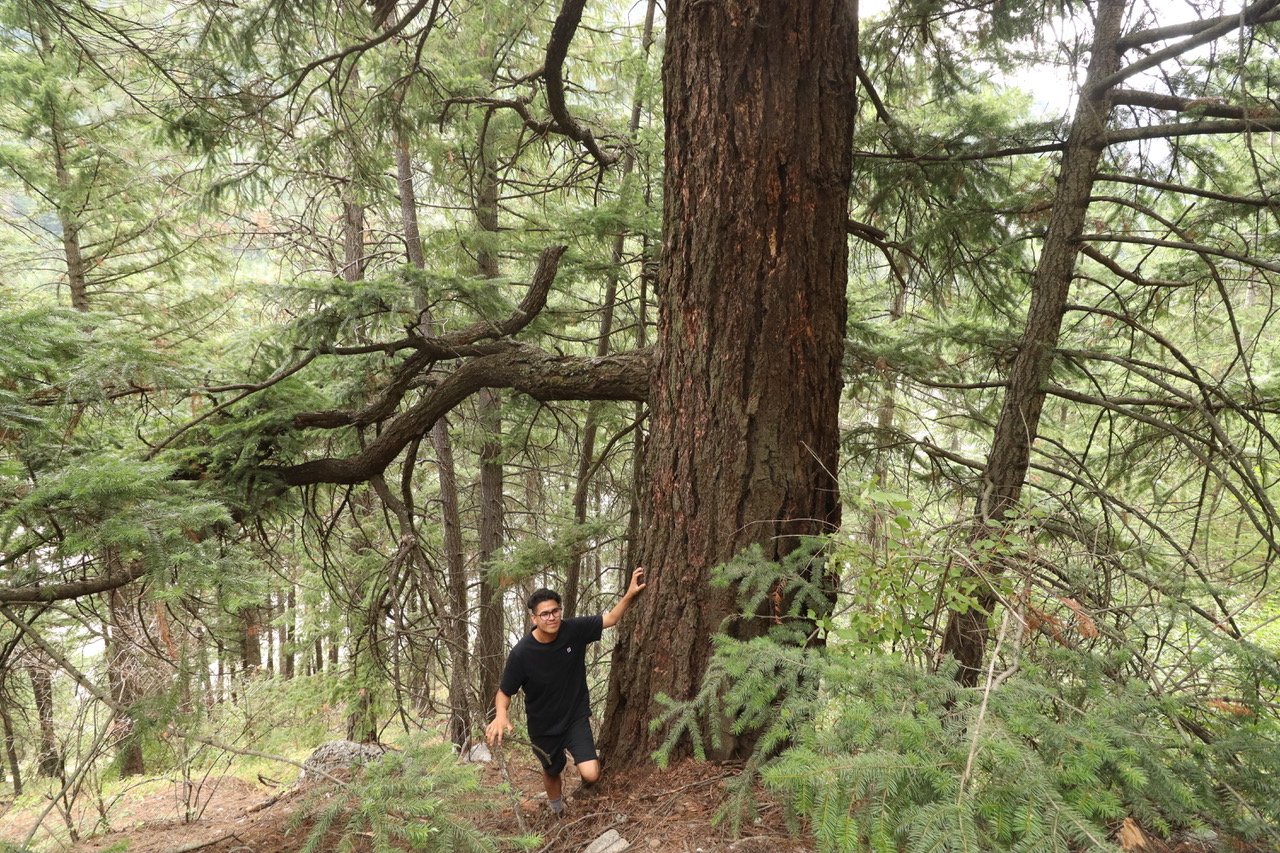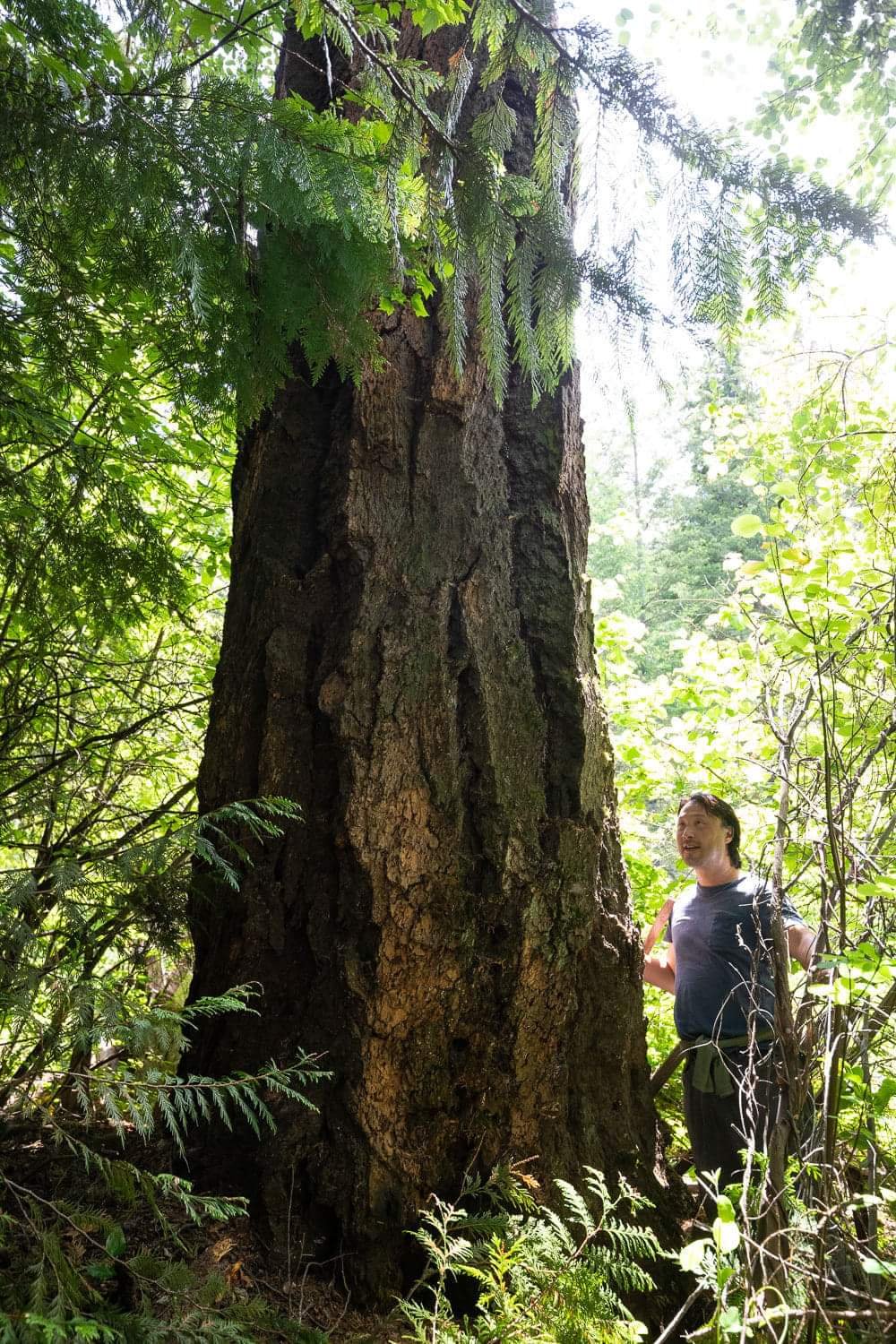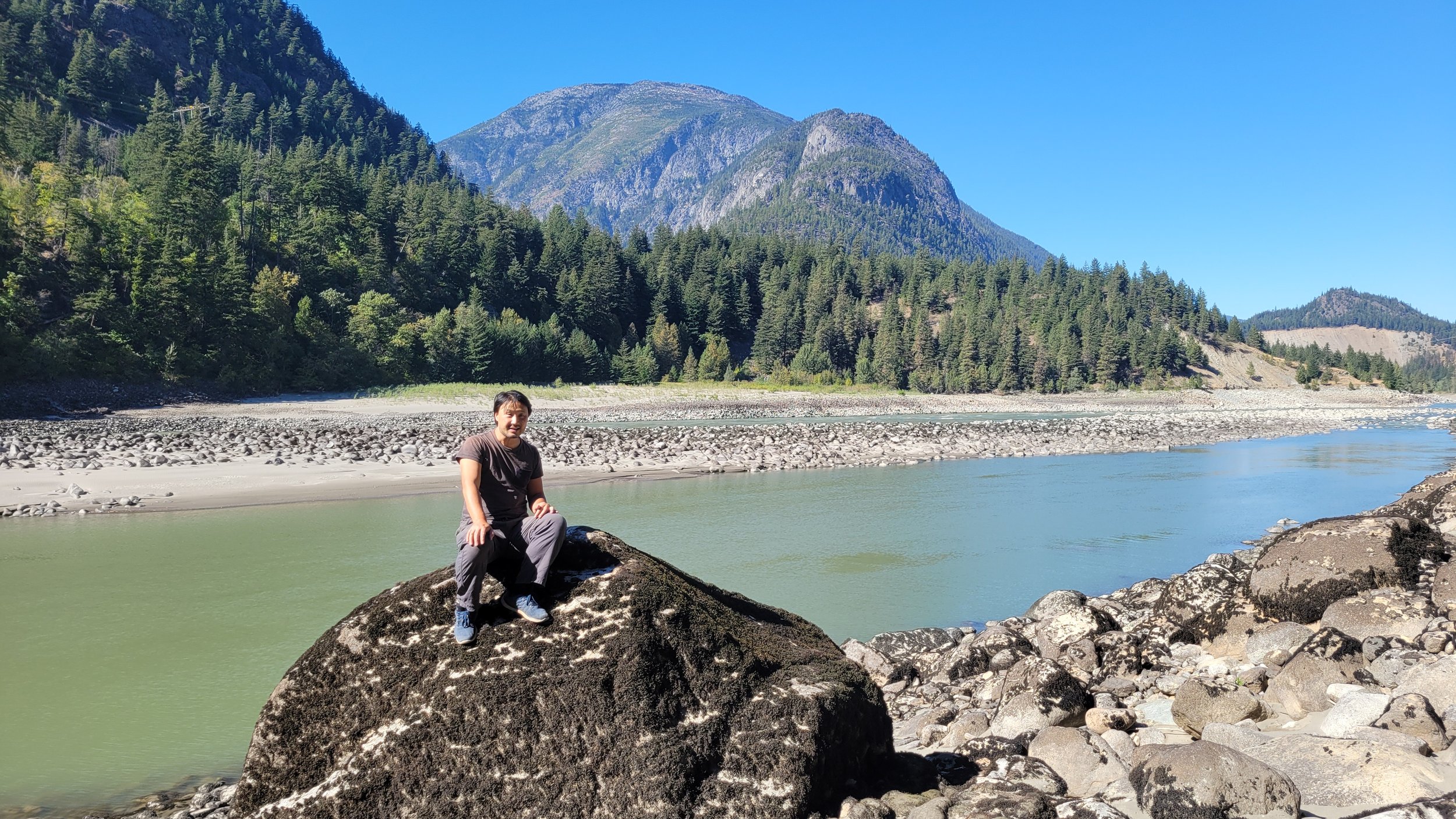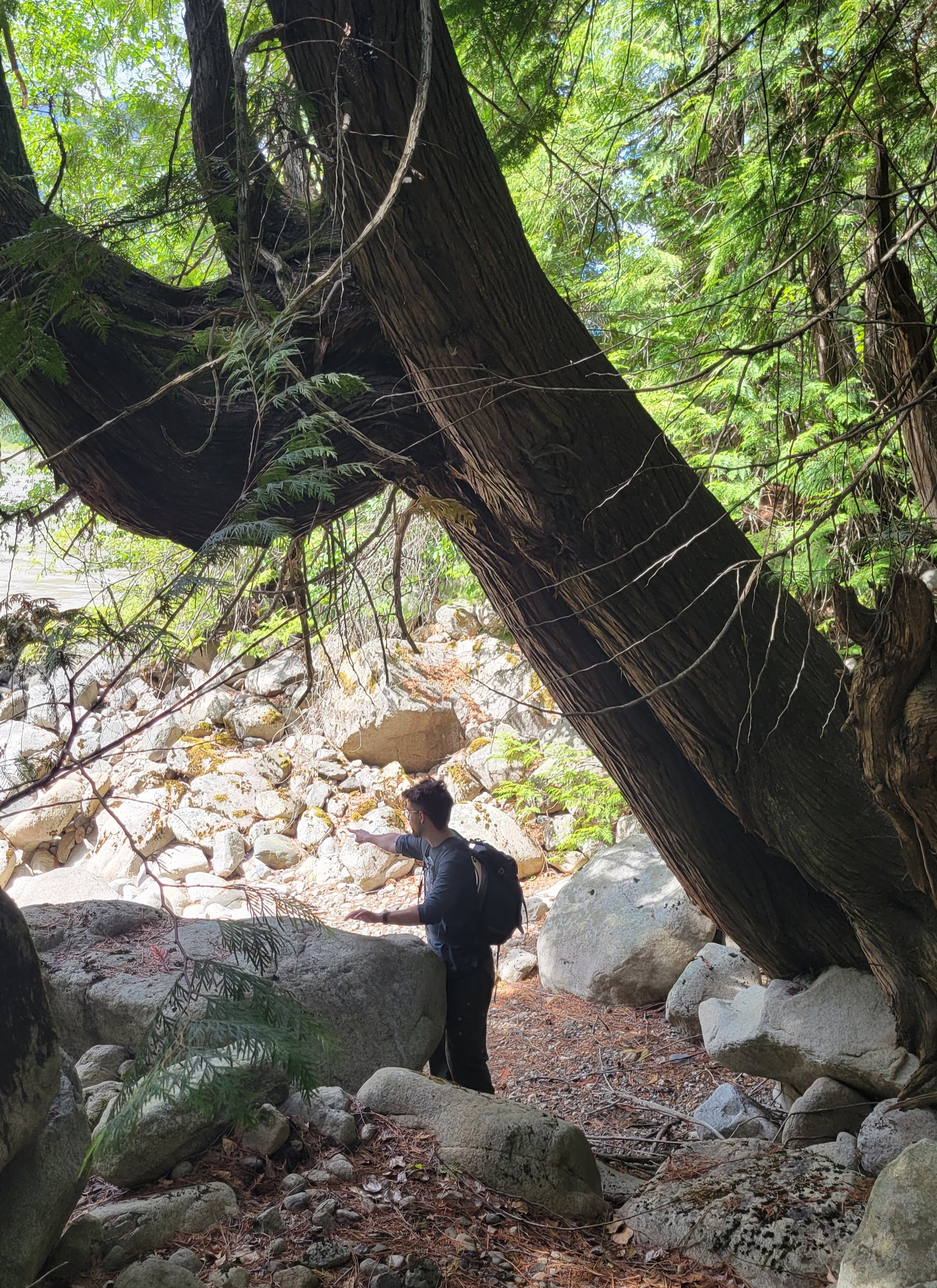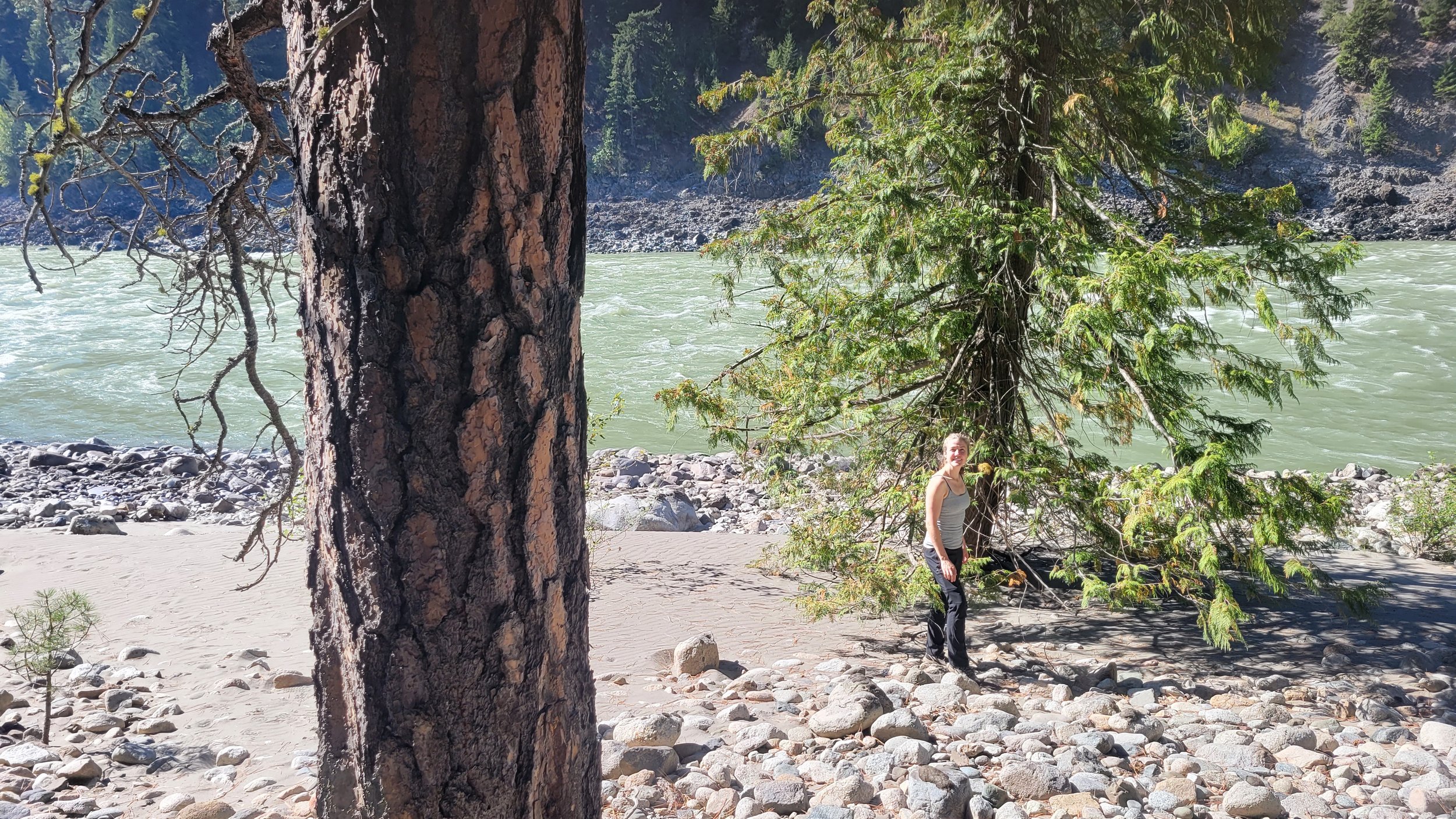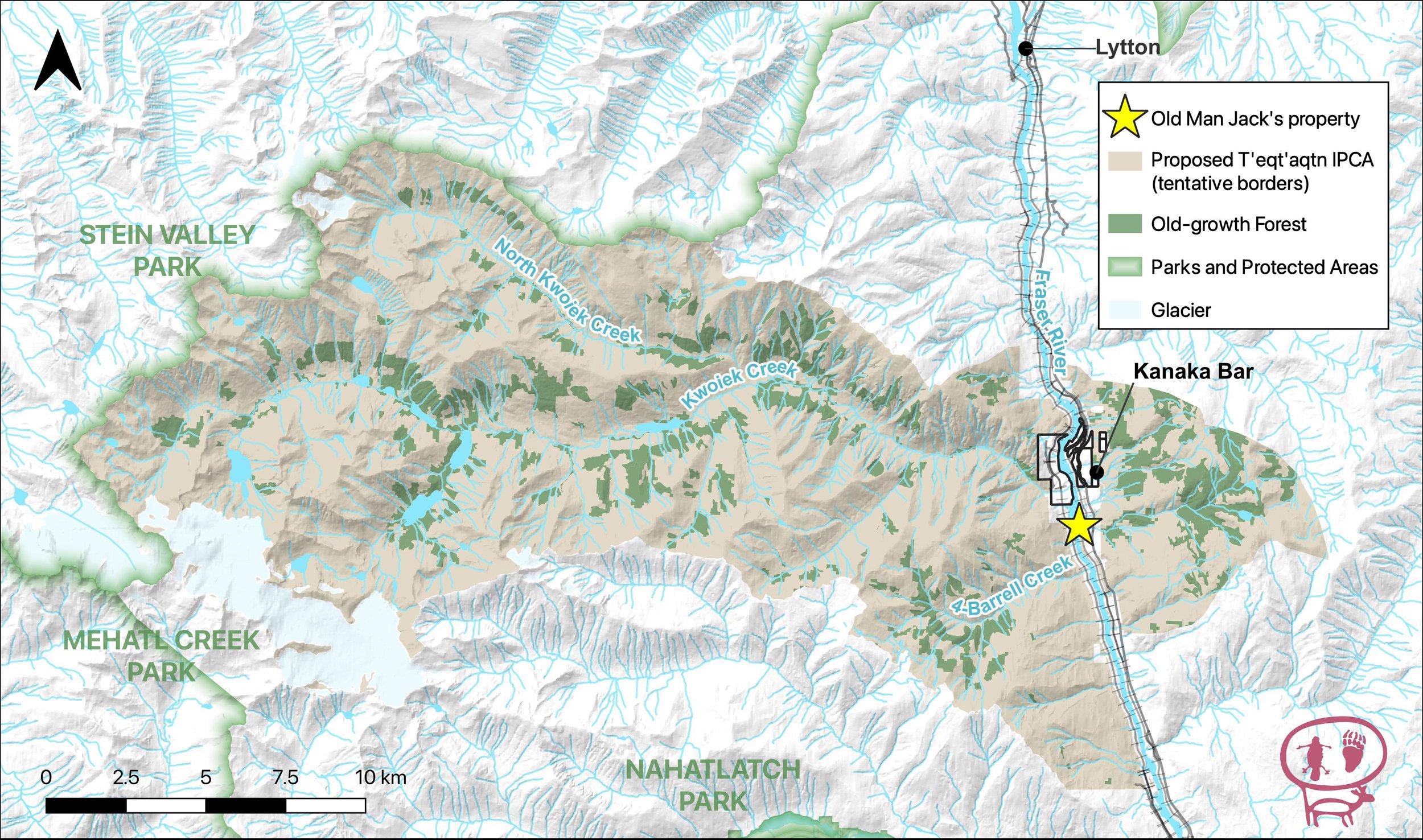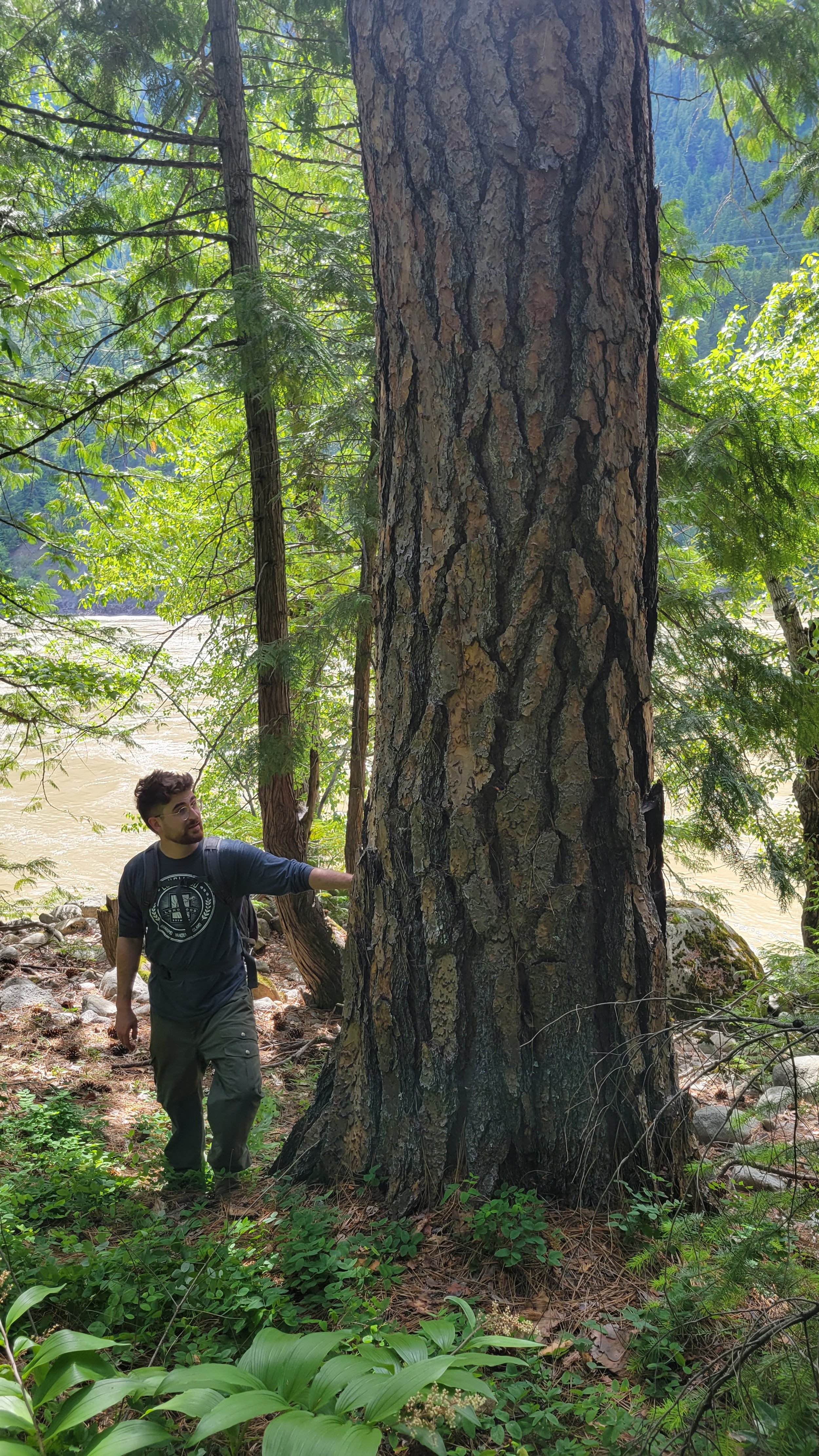One of our partner organizations, the Nature-Based Solutions Foundation (NBSF), has just completed the purchase of perhaps the most diverse old-growth forest in BC - with both dry-adapted old-growth Ponderosa pine and wet-adapted western redcedar growing side-by-side - to be gifted with a conservation covenant to the Kanaka Bar Indian Band whose unceded territory it is on.
The private property, about 15 km south of Lytton, was purchased last week by the new conservation organization, which works with the Endangered Ecosystems Alliance (EEA) and the Ancient Forest Alliance (AFA) to support the Kanaka Bar's protected areas plan and to help protect old-growth forests across BC, including by buying private lands and supporting Indigenous Protected and Conserved Area (IPCA) initiatives on Crown and unceded First Nations lands.
In addition, the Endangered Ecosystems Alliance is also working hard to push the BC government to adequately fund old-growth protection with several hundred million dollars needed to help support fund First Nations sustainable economic development linked to new protected areas, particularly in the most at-risk old-growth forests, and to purchase and protect endangered ecosystems on private lands.
The new private land conservation area recently purchased will help to fill a gap within the Kanaka Bar’s newly announced Indigenous Protected and Conserved Area (IPCA) on the much greater surrounding Crown or public lands, spanning about 35,000 hectares of land in total, including 12,500 hectares of old-growth forests.
Read the press release here:
Tuesday, Oct 11, 2022
Conservation group buys one of BC’s most diverse old-growth forests – to be gifted with a conservation covenant to the Kanaka Bar Indian Band
The Nature-Based Solutions Foundation (NBSF) has completed a purchase last week of what could be the most diverse old-growth forest in BC, located in the Fraser Canyon about 15 km south of Lytton in the unceded territory of the Kanaka Bar Indian Band. The agreement for the sale of the private property was completed in August by the new conservation organization, which intends to gift the land with a conservation covenant to the Kanaka Bar Band, who are working on major conservation projects throughout their territory.
The eight-acre property, casually referred to as “Old Man Jack’s” by the community, is situated along the Fraser River by Siwash Creek south of the Kanaka Bar 1A Reserve and contains a mix of some of the largest old-growth Interior Douglas-firs in the country, culturally-modified ancient Western Redcedars, Ponderosa Pines, Bigleaf Maples, and old-growth Rocky Mountain Junipers. The property also abuts within metres of Canada’s largest Rocky Mountain Juniper on an adjacent parcel owned by Kanaka Bar, and thus will provide an additional conservation buffer for the special tree. In addition to a historic trapper’s cabin, the property contains numerous archaeological and cultural sites.
“Not only does the purchase of Old Man Jack’s allow the community to gather the abundant food and medicine plants here, it gives us the opportunity to employ membership to heal ecosystems damaged by placer mining and other settler activities over the past couple centuries,” said Chief Jordan Spinks. “The wellbeing of our lands, culture, and people go hand in hand.”
“The mouth of Siwash Creek has been a key fishing spot for the T'eqt'aqtn'mux [people of Kanaka Bar] for millennia,” stated Sean O’Rourke, Kanaka Bar Lands Manager. “By purchasing this property, people can fish here once again. We may even organize a culture camp for youth.”
The purchase was made as part of a conservation project known as the Old-Growth Solutions Initiative—a collaboration between the Nature-Based Solutions Foundation (NBSF), Endangered Ecosystems Alliance (EEA), and Ancient Forest Alliance (AFA)—to protect old-growth forests across BC by helping to fill key funding gaps needed to ensure logging deferrals followed by the permanent protection of old-growth forests.
“Protecting this area fits within our greater plan that includes a larger Indigenous Protected and Conserved Area for Kanaka’s territory so we can manage the land for conservation and culture while developing a sustainable economy in tourism and recreation, restoration, stewardship, and clean energy for the community,” noted Greg Grayson, Kanaka Bar CEO.
“We’re excited to have secured protection for what may very well be the most diverse old-growth forest in BC—with species as varied as dry-adapted Ponderosa Pines and Rocky Mountain Junipers growing alongside the wet-adapted Western Redcedars and Bigleaf Maples, all among some of the largest Interior Douglas-fir trees in the country. Along with supporting Kanaka Bar’s Indigenous Protected and Conserved Area plans for nearby public lands, these initiatives represent some major concrete strides towards old-growth protection, which requires working with First Nations whose unceded lands are across BC, and which will require greater federal and provincial funding support to be realized,” stated Ken Wu, Co-founder and Board Chair of the Nature-Based Solutions Foundation. “We are most grateful to the Kanaka Bar people for leading the way towards a solution to sustain nature and culture, and to build a sustainable economy at the same time.”
The property is located in the Interior Douglas-fir (IDF) zone, the least represented of BC’s 16 major ecosystems in the protected areas system. Bears, wolves, coyotes, deer, elk, marmots, and endangered coastal tailed frogs abound in the area, and not long ago, the endangered spotted owl also existed in these forests, so this acquisition could help with the recovery of the species.
Some of the most significant and unique culturally modified old-growth redcedars in North America are on the property, including several towering specimens with giant “candelabra” tops with multiple large “arms”, or branches, growing upwards, each with repeated removal of bark strips and limbs used for local Kanaka Bar construction needs over centuries while allowing the ancient giants to live on, revealing a level of cautionary resource stewardship and a sustainable relationship to the land that greatly contrasts the values of Western industrial society.
The Band has stated that they intend to use the land for cultural and conservation purposes, environmental and cultural education, and potentially eco-tourism. Some possibilities include the development of a cultural education centre where the existing trapper’s cabin stands (the only development on the property, along with a small defunct road), a small campsite, and/or an interpretive trail. Community engagement is underway to decide exactly how the land will be used and managed going forward.
The new private land conservation area will help to fill a gap within the Kanaka Bar’s newly announced Indigenous Protected and Conserved Area (IPCA) on the much greater surrounding Crown or public lands, spanning about 35,000 hectares of land in total, including 12,500 hectares of old-growth forests. See:
The T’eqt’aqtn IPCA adjoins the already protected Stein Valley to the north, and will encompass the Kwoiek and Four Barrel Watersheds, and adjacent parts of the spectacular Fraser River Valley. The IPCA plan is still undergoing further development before it is finalized, and boundaries are preliminary for now.
Both the new private lands conservation area and the IPCA will ultimately require greater provincial and federal funding support, including for sustainable economic development in the community, to help them come to full fruition.
The Nature-Based Solutions Foundation (NBSF) (www.NatureBasedSolutionsFoundation.org) is a new, national conservation charity publicly launched in November of 2021. NBSF works to protect the most endangered ecosystems in Canada by helping to fill key funding gaps needed to expand the protected areas system. This includes providing funding for “land-embedded communities”, such as First Nations, ranchers, and woodlot owners who greatly shape conservation policies on public lands, and, in some cases, by purchasing private lands.
